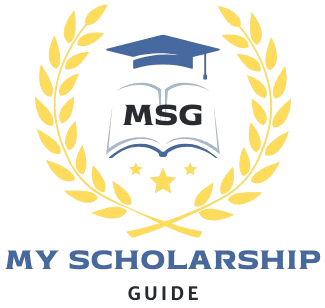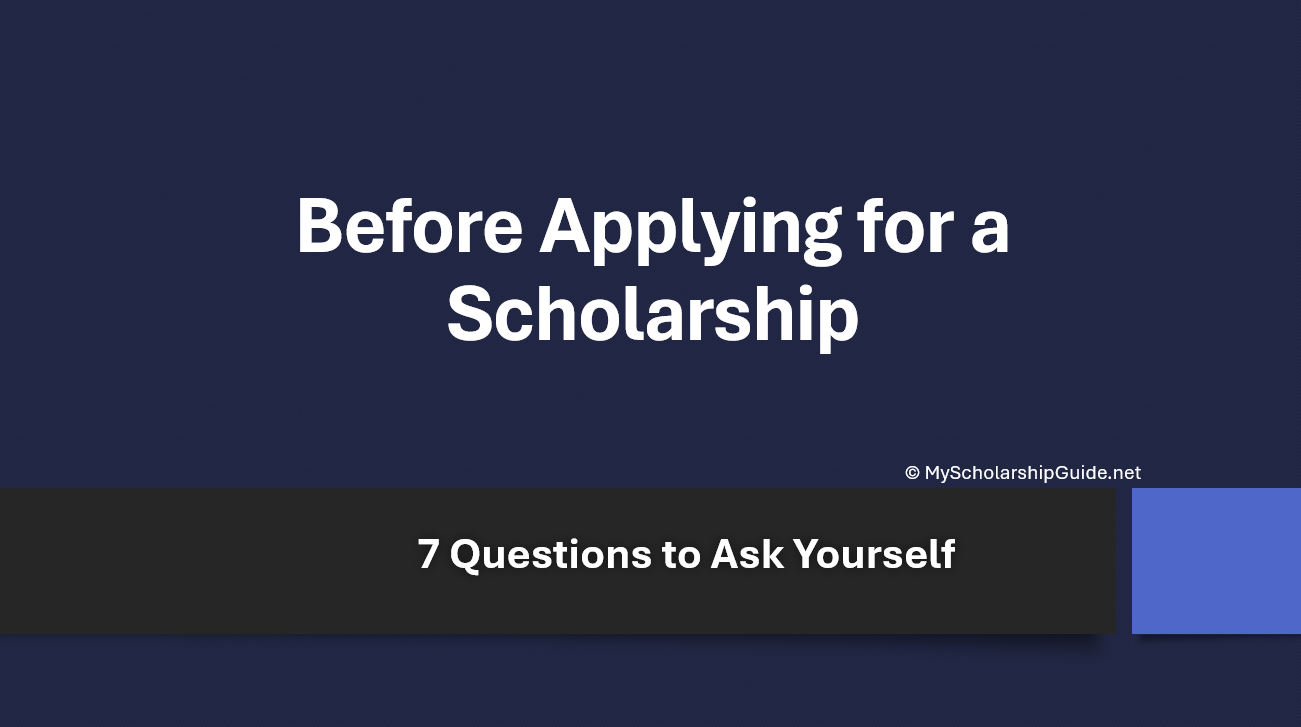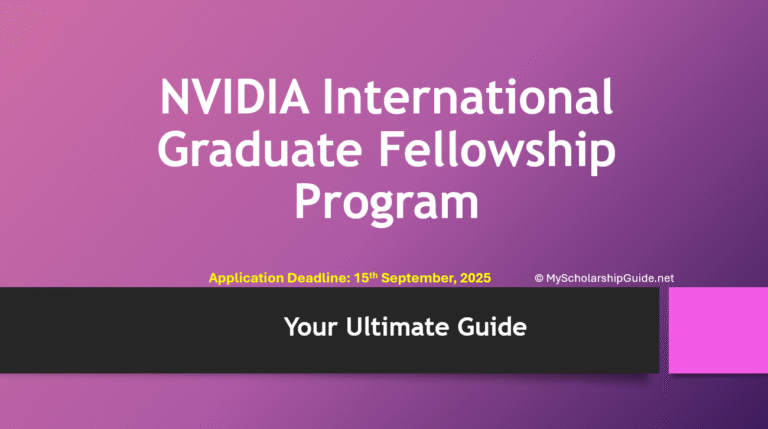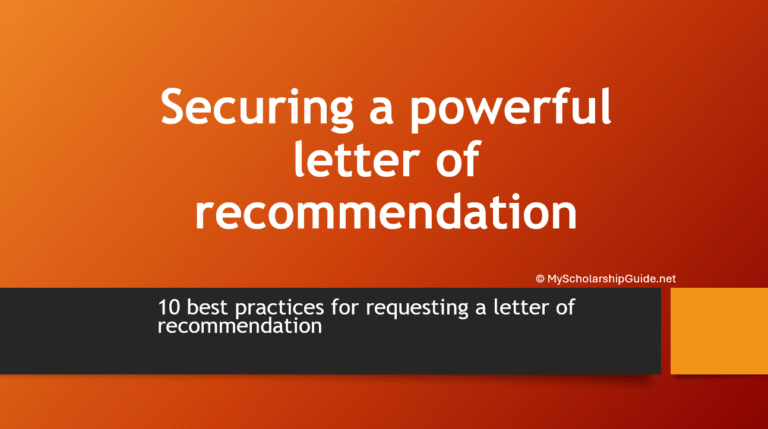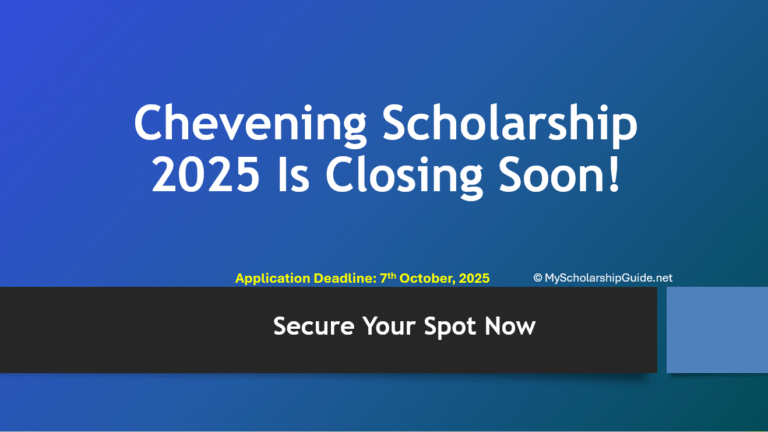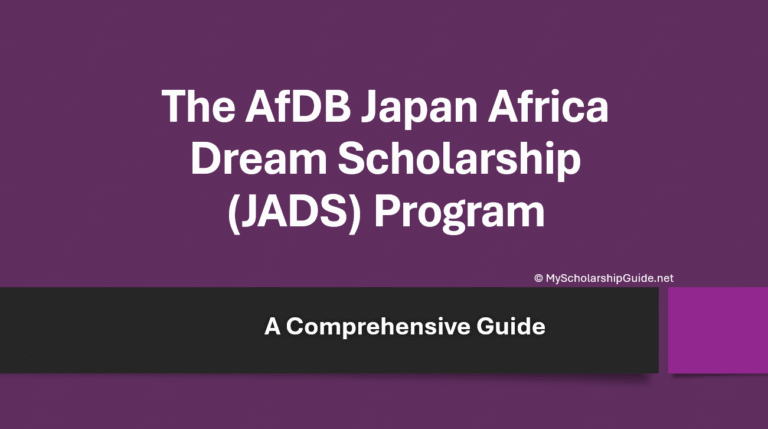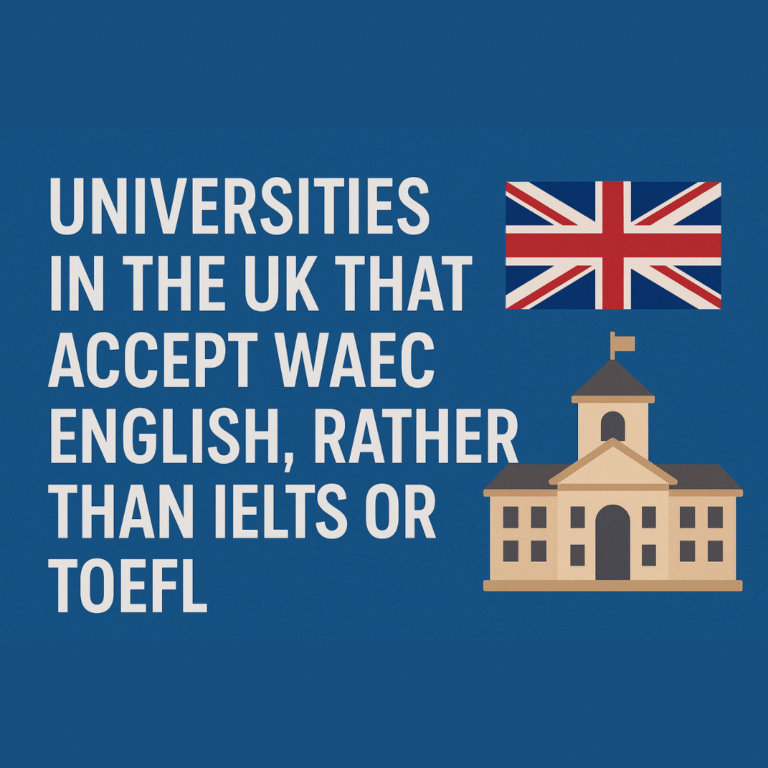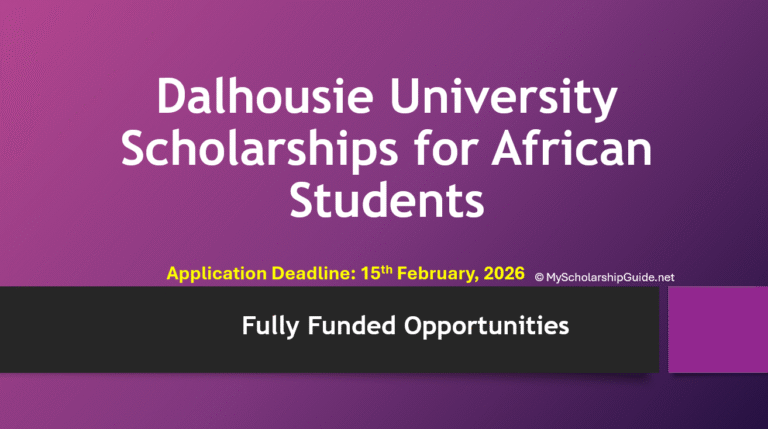7 Questions to Ask Yourself Before Applying for a Scholarship
7 Questions to Ask Yourself Before Applying for a Scholarship
The dream is a powerful one: a fully-funded scholarship to study abroad, a chance to get a world-class education without the crippling financial burden. For countless students and recent graduates across Africa, this dream is the primary motivation for late-night study sessions and endless research. But as you navigate the overwhelming world of scholarship opportunities, it’s easy to get lost in a sea of requirements, deadlines, and essays. You find yourself applying for every scholarship you see, hoping something, anything, will stick. This shotgun approach often leads to burnout, low-quality applications, and ultimately, disappointment.
What if there was a better way? What if you could stop chasing every scholarship and start strategically pursuing the ones that are a perfect fit for you? This is where the magic happens. By taking a step back and asking yourself some critical questions before you even start an application, you can dramatically increase your chances of success. This guide will walk you through seven essential questions that will help you refine your scholarship search, focus your efforts, and craft compelling applications that truly stand out. Get ready to transform your approach and move from a hopeful applicant to a highly qualified candidate.
Question 1: What Do I Truly Want to Study, and Why?
This might seem obvious, but many applicants apply for scholarships without a deep, personal connection to their chosen field. Scholarship committees are not just looking for smart people; they are looking for passionate individuals with a clear vision. Your “why” is your most powerful tool. It’s what transforms a good application into a great one.
Beyond the Degree Title: Finding Your Purpose
Don’t just say you want to study “Computer Science.” Dig deeper. Ask yourself:
- What specific problems do I want to solve? Is it developing sustainable tech solutions for African communities? Is it creating educational software for children in rural areas?
- What specific topics within this field excite me the most? Is it artificial intelligence, cybersecurity, or mobile app development?
- How does my personal history connect to this choice? Did a lack of medical professionals in your community inspire you to pursue a Master’s in Public Health? Did a childhood fascination with machines lead you to Mechanical Engineering?
Your answer to this question forms the core of your personal statement. It’s the story you’ll tell that makes you memorable. A scholarship application for a Master’s in Renewable Energy is far more compelling when the applicant explains how growing up with frequent power outages in Lagos, Nigeria, fueled their desire to solve Africa’s energy crisis. Your “why” provides a narrative thread that weaves through your entire application.
Question 2: Am I Actually Eligible for This Scholarship?
This is the most crucial, yet often overlooked, question. Many students waste precious time on applications for which they are not even eligible. Before you invest hours in writing essays and gathering documents, you must perform a thorough eligibility check.
The Eligibility Checklist: A Step-by-Step Guide
Every scholarship has a specific set of criteria. Go to the official scholarship website and meticulously review the following:
- Nationality: Are you from an eligible African country? Some scholarships are open to all Africans, while others are limited to specific regions or nations.
- Academic Background: Does your academic record meet the requirements? This includes minimum GPA/CGPA, required bachelor’s degree, and any specific prerequisite courses. For instance, the Chevening Scholarship typically requires a 2:1 (Second-Class Upper) degree, or its equivalent.
- Work Experience: Do you have the required number of years of work or volunteer experience? Some scholarships, like the Mandela Washington Fellowship, are specifically for young professionals with a proven track record of leadership.
- English Language Proficiency: Have you met the English test requirements (IELTS, TOEFL, PTE, etc.)? Some scholarships may waive this requirement for graduates of English-speaking universities in certain countries, but always check the official policy.
- Age Limit: Is there an age restriction? While less common for graduate scholarships, some undergraduate or leadership programs do have a maximum age.
Creating a quick checklist for each scholarship helps you filter out the non-starters immediately. This simple step saves you from the frustration of a last-minute discovery that you don’t qualify.
Question 3: Does This Scholarship Align with My Career Goals?
Scholarships are more than just a means to an end; they are an investment in your future. The best scholarships offer more than just tuition fees—they provide networking opportunities, professional development, and a pathway to your desired career.
The Long-Term Vision: Beyond Graduation
Ask yourself:
- Does the university or program have a strong alumni network in my field? For example, if you want to work in global health, a scholarship to a university with a well-known public health school and a strong network of graduates working with international NGOs is a major plus.
- Are there opportunities for internships, research, or practical experience built into the program? A scholarship that includes funding for an internship or a capstone project is an invaluable opportunity to gain real-world experience.
- What are the post-study requirements or benefits? Some scholarships, like the Mastercard Foundation Scholars Program, have a strong focus on return to Africa and require scholars to commit to contributing to their home countries. This is a commitment you must be willing to make.
Choosing a scholarship that aligns with your long-term goals shows the selection committee that you are a serious, forward-thinking candidate who will make the most of their investment.
Question 4: What is the Scholarship Looking for in an Ideal Candidate?
Scholarship applications are not a generic essay competition. They are a response to a specific set of criteria and values that the funding organization holds dear. You must understand what the scholarship committee is looking for to tailor your application effectively.
Decoding the Scholarship’s Mission and Values
Every scholarship has a mission statement. Read it carefully. For example:
- The Rhodes Scholarship looks for students with “intellect, character, leadership, and commitment to service.”
- The Knight-Hennessy Scholars Program seeks “independent thinkers, purposeful leaders, and civic-minded contributors.”
Think about your own experiences and how they align with these values.
- Leadership: Have you led a team project at school or organized a community event?
- Service: Have you volunteered with a local NGO or started a clean-up initiative in your neighborhood?
- Innovation: Have you developed a new process at your workplace or found a creative solution to a problem?
Don’t just state that you possess these qualities. Show, don’t tell. Use specific, concrete examples from your life to demonstrate how you embody the values the scholarship is looking for. For instance, instead of saying “I am a leader,” describe how you successfully led a team of five in a competition, overcoming a specific challenge along the way.
Question 5: What Gaps Do I Need to Address in My Application?
No one is a perfect candidate. Acknowledging your weaknesses and having a plan to address them shows maturity, self-awareness, and a strong sense of purpose. This is especially important for competitive scholarships.
A Candid Self-Assessment
Be honest with yourself.
- Academic Gaps: Did you have a poor semester due to personal reasons? If so, be prepared to explain this briefly and show how you improved. Did you get a low grade in a specific course? If that course is a prerequisite, can you take an online certificate to show you’ve improved your knowledge?
- Work Experience Gaps: Is your work experience not directly in your field of study? Frame your existing experience to highlight transferable skills like problem-solving, communication, and teamwork.
- Extracurricular Gaps: Have you focused mostly on academics and have little to show in terms of leadership or volunteer work? It’s not too late to get involved! Start volunteering with a local organization a few months before you apply to show your commitment.
Addressing potential weaknesses proactively in your application—for example, in an optional essay or cover letter—can turn a potential red flag into a story of resilience and growth.
Question 6: Have I Started Gathering My Documents and References Early Enough?
This question is a practical one, but its importance cannot be overstated. A brilliant application can be derailed by a missing document or a late letter of recommendation. The scholarship process is a race against time, and being prepared is your biggest advantage.
The Ultimate Document Checklist
Create a master folder on your computer and a physical folder for all your documents. Start gathering them at least 3-6 months before the application deadline.
- Academic Transcripts: Get official copies from your university. This can be a long process in many African institutions.
- Letters of Recommendation: Identify your referees (professors, employers, mentors) early. Give them ample time (at least 4-6 weeks) to write a strong, detailed letter. Provide them with your CV, personal statement draft, and a list of your achievements to help them write a compelling letter.
- Proof of English Proficiency: Take the IELTS or TOEFL exam well in advance. Scores can take a few weeks to arrive, and you may need to retake the test to achieve the required score.
- Passport and Visa: Ensure your passport is valid for at least six months beyond your intended date of travel. Research the visa process for your target country, as this can also be time-consuming.
Being organized is a sign of a serious applicant. It prevents last-minute panic and ensures you submit a complete, polished application.
Question 7: Why Am I the Best Candidate for This Specific Scholarship?
This question forces you to move from a general application to a highly specific and compelling one. It’s the final, crucial self-check before you click “submit.”
Crafting Your Unique Value Proposition
You are not just a good student; you are a unique individual with a unique story, unique skills, and unique experiences. Your job is to connect all these dots for the scholarship committee.
- Connect Your “Why” to Their “What”: Revisit Question 1. How does your passion for solving a specific problem align with the scholarship’s mission? For example, if a scholarship aims to promote global health in Africa, explain how your experience volunteering at a local clinic in your home country of Ghana has prepared you to make a tangible impact after your studies.
- Highlight Your Achievements: Don’t just list your grades. Quantify your accomplishments. Instead of “I was a good student leader,” write “I led a team of 10 students to raise over $5,000 for a community library project, increasing its book collection by 200%.”
- Show Your Future Impact: The scholarship committee is investing in your potential. Clearly articulate how you will use the knowledge and skills gained to make a significant contribution to your community, country, or the world. This is your chance to show them they are making a smart investment by choosing you.
Answering this question forces you to see your application from the perspective of the reader. It helps you craft a narrative that is not just about your past but about the incredible future you will build with their support.
Frequently Asked Questions (FAQs)
What if I don’t have a high CGPA? Can I still get a scholarship?
Yes, absolutely. While a strong CGPA is important, many scholarships, especially those with a leadership or service focus, look at a holistic profile. They consider your extracurricular activities, work experience, volunteer work, and personal story. A lower CGPA can be compensated for by a compelling personal statement that explains your circumstances and a strong track record of leadership and community involvement.
Is it a good idea to apply for as many scholarships as possible?
It is a common mistake to apply for every scholarship you see. A better strategy is to focus on a few scholarships for which you are highly qualified and a perfect fit. Spending time on 5-10 high-quality, tailored applications is far more effective than submitting 50 rushed, generic ones. Quality over quantity is the golden rule.
How important are letters of recommendation?
Letters of recommendation are extremely important. They provide an outside perspective on your character, skills, and potential. A strong letter from a respected professor or employer who knows you well can significantly boost your application. A weak or generic letter, on the other hand, can hurt your chances. That’s why it’s crucial to give your referees enough time and information to write a powerful letter.
Should I pay for a scholarship application service?
Be extremely cautious of services that promise to guarantee you a scholarship for a fee. Many of these are scams. The best resources for scholarship applications are the official websites of the universities and funding organizations themselves. Focus your energy on crafting your own authentic application and seeking advice from mentors or your university’s career services, which are often free.
What if I don’t get a scholarship on my first try?
The scholarship journey is often a marathon, not a sprint. Many successful scholars faced rejections before they received an acceptance. If you are not successful on your first attempt, ask yourself the questions in this article again, seek feedback if possible, improve your profile (e.g., gain more experience, take an online course), and apply again next year. Persistence is key.
Your Next Steps to Success
You’ve made it through the seven critical questions. Now you have a powerful new lens through which to view your scholarship search. Stop applying blindly and start applying with purpose. Your immediate next step is to take out a pen and paper or open a new document on your computer. Answer these questions for yourself, honestly and in detail. Use your answers to create a list of 5-10 scholarships that are a perfect fit for you. Once you have this list, you can begin the focused, strategic work of preparing your documents and crafting your winning applications. The journey to a fully-funded education is within your reach, and it starts now.
Disclaimer
Unless otherwise stated, www.myscholarshipguide.com is not affiliated with any of the scholarship providers listed on our website, nor do we process applications on behalf of any organization. The content provided is for informational purposes only, and visitors are encouraged to use this information at their own discretion.
